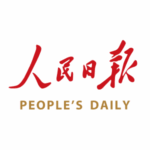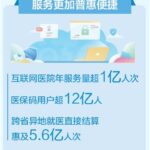According to a press conference held on September 8, the 2025 National Cybersecurity Awareness Week will take place from September 15 to 21, with major events including the opening ceremony to be held in Kunming, Yunnan Province.
The 2025 National Cybersecurity Awareness Week, themed “Cybersecurity for the People, Cybersecurity by the People—Safeguarding High-Quality Development with High-Level Security,” will feature an opening ceremony, a cybersecurity technology summit, a cybersecurity expo and international promotion conference for cybersecurity products and services. It will also include 12 sub-forums focusing on topics such as collaborative cybersecurity defense, security of government information systems, artificial intelligence security, personal information protection, and data compliance governance. The event will also host themed days including Campus Day, Telecom Day, Legal Day, Finance Day, Youth Day, and Personal Information Protection Day.
The 2025 National Cybersecurity Awareness Week is jointly organized by 10 departments including the Central Propaganda Department, the Cyberspace Administration of China, the Ministry of Education, the Ministry of Industry and Information Technology, the Ministry of Public Security, the People’s Bank of China, the National Radio and Television Administration, the All-China Federation of Trade Unions, the Central Committee of the Communist Youth League, and the All-China Women’s Federation.
Central Propaganda Department
The Central Propaganda Department is a key institution of the Chinese Communist Party responsible for ideological work, public communication, and shaping public opinion. It was established in the early years of the Party and plays a central role in promoting Party policies and socialist values. Its work encompasses media oversight, cultural development, and political education throughout the country.
Cyberspace Administration of China
The Cyberspace Administration of China (CAC) is the central internet regulator and censor in the People’s Republic of China. Established in 2014, it oversees and enforces the country’s extensive internet governance policies, including the Great Firewall. Its primary role is to maintain strict control over online information, enforce censorship, and promote the government’s ideological agenda in the digital sphere.
Ministry of Education
The Ministry of Education is a government department responsible for national education policy, curriculum standards, and the administration of public schools. Its history is tied to the development of a country’s modern state apparatus, often being formally established in the 19th or 20th century to create a standardized, national education system. Its primary function is to oversee and regulate education to improve literacy and workforce development.
Ministry of Industry and Information Technology
The Ministry of Industry and Information Technology (MIIT) is a cabinet-level executive agency of the People’s Republic of China, established in 2008. It was formed by merging several pre-existing regulatory bodies to oversee policy, planning, and development for China’s industrial sectors, telecommunications, and the internet. The ministry plays a central role in guiding the country’s technological advancement and manufacturing power.
Ministry of Public Security
The Ministry of Public Security is the principal police and security authority of the People’s Republic of China, responsible for public order, internal security, and law enforcement. It was established in 1949 following the founding of the PRC and has since played a central role in maintaining state security and social stability.
People’s Bank of China
The People’s Bank of China (PBoC) is the central bank of the People’s Republic of China, founded in 1948 in Shijiazhuang. It was the sole commercial and central bank until 1983, when its commercial functions were transferred to new institutions, solidifying its role as the country’s modern central monetary authority.
National Radio and Television Administration
The National Radio and Television Administration (NRTA) is the primary regulatory body for radio, television, and online audiovisual media in China. It was established to oversee and control media content, ensuring it aligns with state policies and serves as a mouthpiece for the Communist Party of China. Its history is rooted in the state’s longstanding control over information and propaganda, evolving from earlier broadcasting authorities to manage modern media platforms.
All-China Federation of Trade Unions
The All-China Federation of Trade Unions (ACFTU) is the sole national trade union federation in the People’s Republic of China, established in 1925 to represent and protect the rights of workers. It operates under the leadership of the Chinese Communist Party and functions as a mass organization that bridges the government and the workforce.



